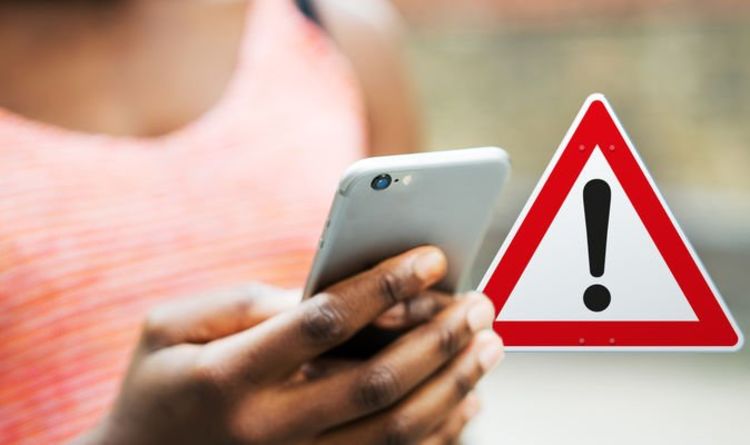In the digital age, where communication is primarily conducted through text messages and emails, scams and fraudulent activities have found new avenues to target unsuspecting individuals. One such scam that has been on the rise is the us9514961195221 – Scam fake text messages, involving fake text messages. This article will delve into the details of this scam, its modus operandi, how to identify it, and most importantly, how to protect yourself from falling victim to it.
Introduction
In an era where smartphones are an integral part of our daily lives, text messages have become one of the most common forms of communication. However, this convenience has also given rise to scams and fraudulent activities, and the US9514961195221 scam is a prime example of this threat.
Understanding the US9514961195221 Scam
The US9514961195221 scam is a type of phishing scam that targets individuals through fake text messages. These messages often claim that the recipient has won a substantial amount of money or a valuable prize. They are designed to lure victims into providing personal information or clicking on malicious links.
How the Scammers Operate
Scammers behind the US9514961195221 scam typically send out a large number of text messages randomly. These messages may appear to be from well-known companies or organizations. They use various tactics to make the messages seem legitimate, such as using official logos and language.
The text messages usually contain a congratulatory message, informing the recipient that they have won a prize. To claim the prize, the recipient is instructed to reply with personal information, such as their name, address, and sometimes even their bank details. Falling for this trap can lead to identity theft and financial losses.
Signs of a US9514961195221 Scam
Identifying a US9514961195221 scam message can be challenging, as scammers are becoming increasingly sophisticated. However, there are some common signs to watch out for:
- Too Good to Be True: If a message claims you’ve won a substantial prize without any prior participation, it’s likely a scam.
- Urgency: Scammers often create a sense of urgency, pressuring recipients to act quickly.
- Grammatical Errors: Scam messages often contain spelling and grammatical mistakes.
- Unknown Sender: Be cautious if you receive a message from an unknown sender.
Protecting Yourself from Scams
Preventing falling victim to the US9514961195221 scam and similar scams is crucial. Here are some steps you can take to protect yourself:
- Verify: If you receive a message claiming you’ve won a prize, verify its authenticity by contacting the official company directly.
- Don’t Share Personal Information: Never share personal or financial information via text message.
- Use Security Software: Install reliable security software on your smartphone to detect and block scam messages.
What to Do if You Receive a Scam Text
If you suspect you’ve received a scam text, follow these steps:
- Do Not Respond: Avoid responding to the message or clicking on any links.
- Block the Sender: Block the number to prevent further messages.
- Report the Scam: Report the scam to your mobile service provider and the appropriate authorities.
Reporting Scam Messages
Reporting scam messages is essential to help authorities track down and take action against scammers. Most mobile service providers have a dedicated channel for reporting spam and scam messages. Additionally, you can report such incidents to the Federal Trade Commission (FTC) or your country’s equivalent consumer protection agency.
Real-Life Examples
To emphasize the severity of this issue, here are a few real-life examples of individuals who fell victim to the US9514961195221 scam:
- Jane’s Story: Jane received a text claiming she had won a luxury vacation. Excited, she provided her personal information, only to later discover unauthorized charges on her credit card.
- Mark’s Experience: Mark clicked on a link in a scam message and unknowingly downloaded malware onto his phone, compromising his personal data.
The Legal Aspect
Engaging in phishing scams like the US9514961195221 scam is illegal in most jurisdictions. Perpetrators, once caught, can face significant legal consequences, including fines and imprisonment. However, tracking down these scammers can be challenging due to the use of disposable phone numbers and anonymized online identities.
Conclusion
The US9514961195221 scam and similar fraudulent text messages pose a significant threat to individuals’ financial and personal security. It’s crucial to remain vigilant, verify the authenticity of unexpected messages, and never share personal information without proper verification. By staying informed and taking preventive measures, you can protect yourself from falling victim to these scams.
FAQs
- How do scammers get my phone number?
Scammers often obtain phone numbers from public directories, data breaches, or by randomly generating them.
- What should I do if I’ve already fallen for a scam?
If you’ve provided personal information to a scammer, contact your bank and relevant authorities immediately to mitigate potential damage.
- Can scammers be traced and caught?
While it’s challenging, law enforcement agencies and cybersecurity experts work together to track down and prosecute scammers.
- Are there any mobile apps to help identify scam messages?
Yes, several mobile apps can identify and block scam messages. Research and choose one that suits your needs.
- How can I protect my personal information online?
Use strong, unique passwords, enable two-factor authentication, and be cautious about sharing personal information online.

